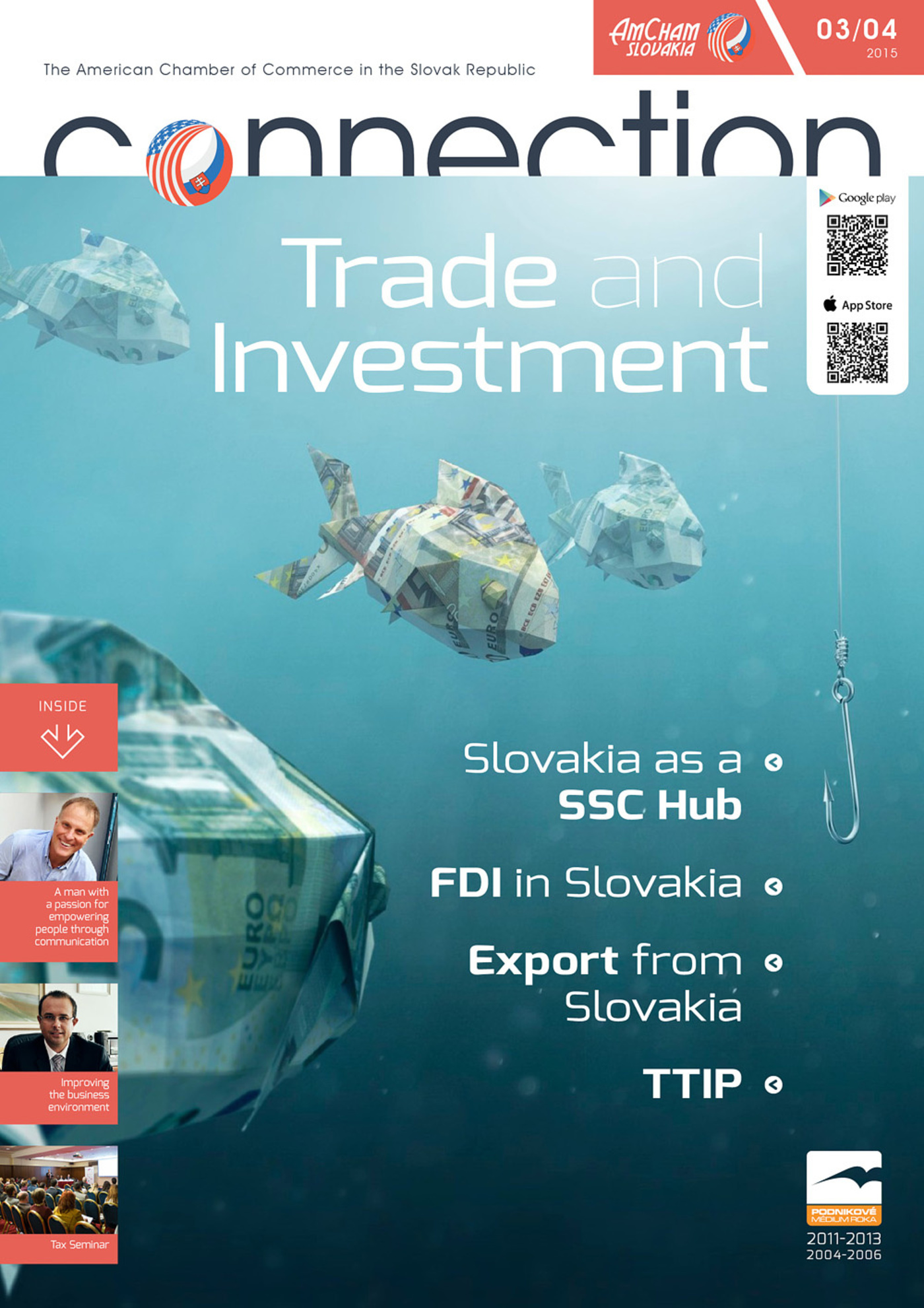In January 2015, the Government of the Slovak Republic approved the “Report on the State of the Business Environment in the Slovak Republic with Proposals for its Improvement”. The main objective of this report was to characterize the state and development of the business environment in the Slovak Republic and identify the main measures required for its further improvement.
Current State of the Business Environment in the Slovak Republic
The World Bank’s Doing Business 2015 index ranked the Slovak Republic 37th of the 189 assessed economies. From Slovakia´s neighboring countries only Austria (21st) and Poland (32nd) were ranked higher. The Slovak Republic moved up 12 places compared to last year’s ranking. However, it should be noted that changes in three areas of the evaluation methodology were made – revision of the ranking calculation, expansion of the city sample in large economies, and a broadening of the scope of indicator sets. This was a significant contributor to the substantially improved ranking of the Slovak Republic compared with last year’s results. In contrast, the Slovak Republic was ranked only 75th in the Global Competitiveness Report of the World Economic Forum, which represents an improvement of three places compared with the previous year.
In general, and despite recent improvements, the quality of the business environment in the Slovak Republic is not optimal and there is still much to be improved.
The report on the state of the business environment highlights information duties imposed on entrepreneurs in the Slovak Republic by individual legal regulations as one of the most important areas with room for improvement. The report states that the 282 analyzed legal regulations imposed 4,566 information duties on entrepreneurs, resulting in total administrative costs of approximately €2.7 billion per year. These figures clearly demonstrate that there is an urgent and vital need to reduce the administrative burden on entrepreneurs, despite several recent improvements.
Proposals for Improvement of the Business Environment
The report contains several proposals for improving the business environment. The proposals are divided into several groups, those aimed at (i) improving the quality of regulations affecting the business environment (ii) improving the quality of public administration when dealing with the business environment (iii) improving the quality of the labor market and the support of human capital and (iv) developing R&D.
It should be noted that a number of proposals in the report are lacking in detail. For example, the proposal to reform the judicial system in order to improve law enforcement, reduce the duration of court proceedings and improve dispute resolution. In addition, the report does not outline any specific steps that need to be taken. As regards the judical system, the Government of the Slovak Republic has already submitted specific proposals for new procedural codes on civil proceedings to the National Council of the Slovak Republic. They are intended to improve the efficiency of law enforcement and thus also improve the business environment. However, the actual impact will be seen only after these measures are applied in practice.
Another key area identified by the report is the improvement of the quality of the labor market and the support of human capital. Several measures were identified in this area, for example, the need to reform the education system, with an emphasis on improving the employment prospects of those who have finished high school and college graduates. Other measures include the creation of a support program for the reduction of the ‘brain drain’ and the promotion of the immigration of qualified labor. Of particular interest is the concerted effort to develop direct cooperation between universities and scientific institutions with industrial companies, particularly in areas with high added value.
We believe that the most important area identified in the report is the administrative and regulatory burden on entrepreneurs as regards significant practical improvements for Slovak entrepreneurs, i.e. reducing the time and cost demands on administrative acts at start-up and during the running of a business. Simplification of the decision-making process at authorities and the elimination of the need for repeated visits to authorities and multiple submissions of the same documents to different authorities will unquestionably improve everyday functioning for all entrepreneurs.
Furthermore, there have already been several recent significant changes in this area (such as the introduction of single contact points at trade licensing offices). There have been favorable developments as regards the extension of e-government services, however, this still requires more dynamic development. If the Government of the Slovak Republic contributes to improvements in this area, this will be a positive step for all entrepreneurs who must deal with the administrative burden on a daily basis, rather than devoting their valuable time to the development of their core business activities.
Conclusion
The facts and figures above clearly show that the evaluation of the business environment in individual economies depends, to a large extent, on the selected evaluation methodology. Despite the fact that in several instances the Slovak Republic is more highly ranked than neighboring countries, it is necessary to continue to adopt measures aimed at the further improvement of the business environment. The preparation of the report in itself demonstrates that the improvement of the quality of the business environment is a priority for the current government. This is a positive trend which will contribute to better visibility of the Slovak Republic abroad. The individual proposals described in the report can be considered as measures which will result in improvements to the business environment. It is certainly a positive that we are beginning to see tangible measures aimed at the realization of these proposals. However, only the subsequent implementation of the individual proposals for improvement in practice will show whether they will ultimately be successful.
Jana Pagáčová, Squire Patton Boggs, Partner
Jakub Kamenický, Squire Patton Boggs, Registered Legal Trainee



Follow us